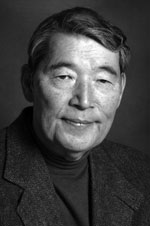 |
 |
|
 |
 |
 |
 |
 |
|
 |
 |
 |
 |

The Masakazu Konishi Endowed Lectureship in Neural Systems & Behavior
7/23/08 - 8:00 PM - Lillie Auditorium
"Assembling a Circuit for Olfactory Behavior"
Cori Bargmann, Rockefeller University, HHMI Investigator
Dr. Cori Bargmann received her undergraduate degree in biochemistry from the University of Georgia. She studied for her Ph.D. under Robert Weinberg at the Massachusetts Institute of Technology, graduating in 1987. She pursued a postdoctoral fellowship with H. Robert Horvitz, also at MIT, until 1991, when she accepted a faculty position at the University of California, San Francisco. She remained there until 2004, when she joined Rockefeller University as the Torsten N. Wiesel Professor. Dr. Bargmann also is associate director of the Shelby White and Leon Levy Center for Mind, Brain and Behavior.
Dr. Bargmann is a member of the National Academy of Sciences and the American Academy of Arts and Sciences. She was the 2004 recipient of the Dargut and Milena Kemali Prize for Basic and Clinical Neuroscience and received the Charles Judson Herrick Award for comparative neurology in 2000. She was awarded the Takasago Award for olfaction research in 1997 and the W. Alden Spencer Award for neuroscience research in 1997. Dr. Bargmann is also an investigator at the Howard Hughes Medical Institute.
Environment, experience and the biology of the brain interact to shape an animal’s behavior. C. elegans, a worm with just 302 neurons, shows an unexpected sophistication in its ability to detect and respond to olfactory stimuli, making it an ideal subject in which to study these interactions. Dr. Bargmann’s laboratory investigates how the worm’s neural circuits develop, identifies the genes and neural pathways for its navigation behaviors and asks how sensory inputs regulate those circuits.
 |
|
Dr. Masakazu "Mark" Konishi is the Bing Professor of Behavioral Biology at the California Institute of Technology (Caltech). He has worked extensively for three decades on the auditory systems of barn owls, which can use their acute hearing to home in on mice on the ground, even in total darkness. The research has led to an understanding of how the owl's brain manages to "compute" precise locations in two dimensions, and how the neural pathways and circuits are involved. Dr. Konishi's work has implications for better understanding the human brain and perhaps even for future interventions in certain neurological disorders. Dr. Konishi received a B.S. and M.S. from Hokkaido University, Sapporo, Japan, and a Ph.D. from the University of California, Berkeley. Following post-doctoral fellowships at the University of Tübingen and Max-Planck-Institut in Germany, Dr. Konishi was appointed an assistant professor of biology at the University of Wisconsin, Madison. He subsequently held assistant and associate professor positions at Princeton University. He has been a professor at Caltech for the last 32 years. Dr. Konishi is a member of the National Academy of Sciences, the American Academy of Arts and Sciences, as well as numerous professional organizations. He has received many awards, including The Peter Gruber Prize in Neuroscience.
|
| |
  |
|
 |
 |
|